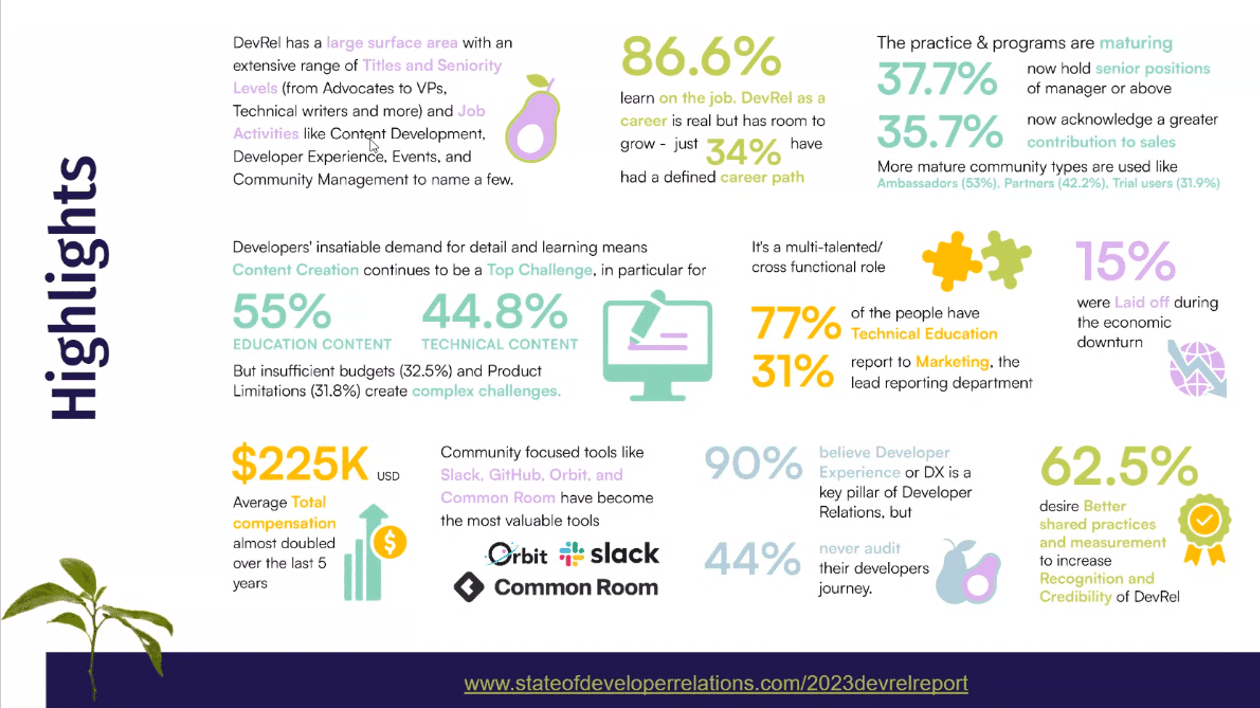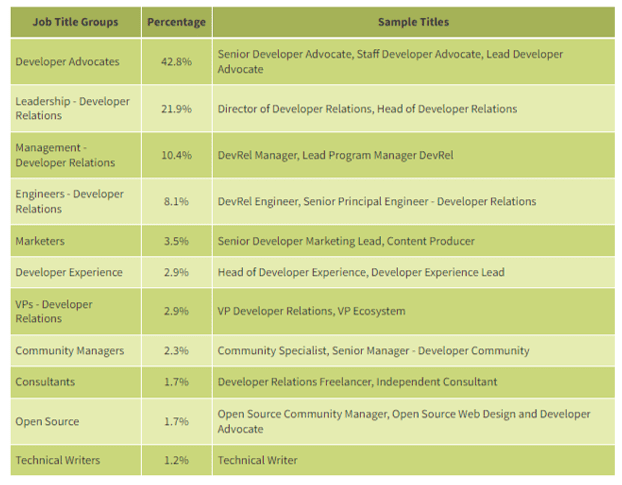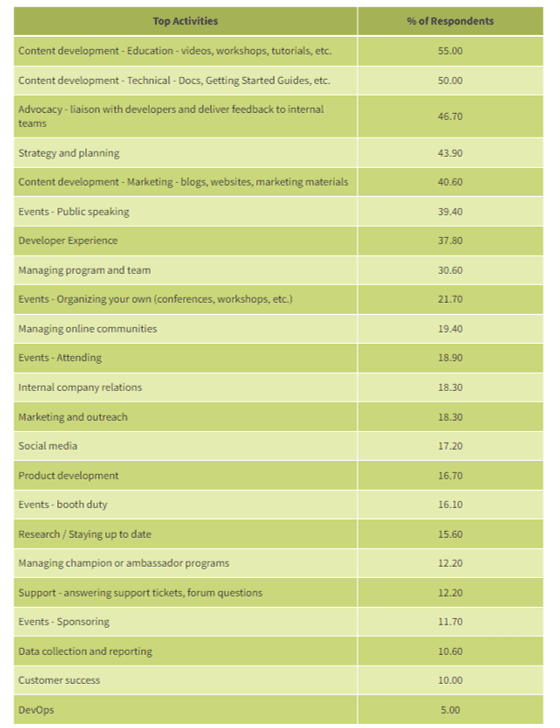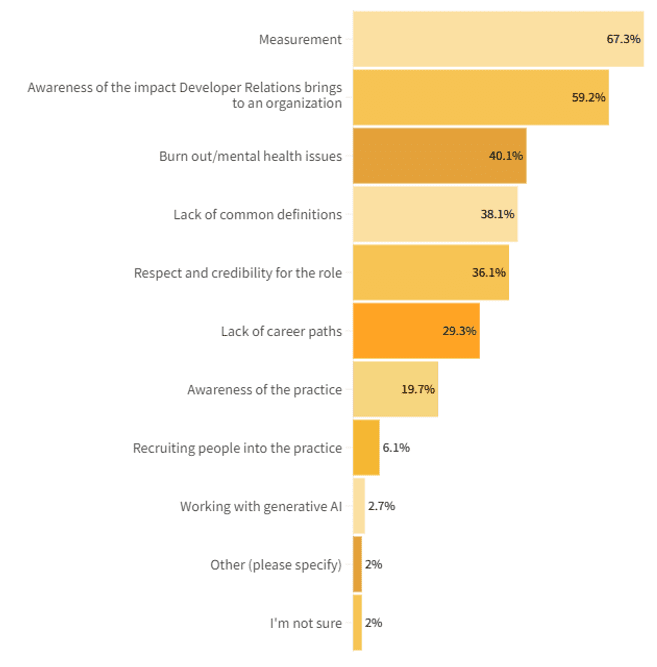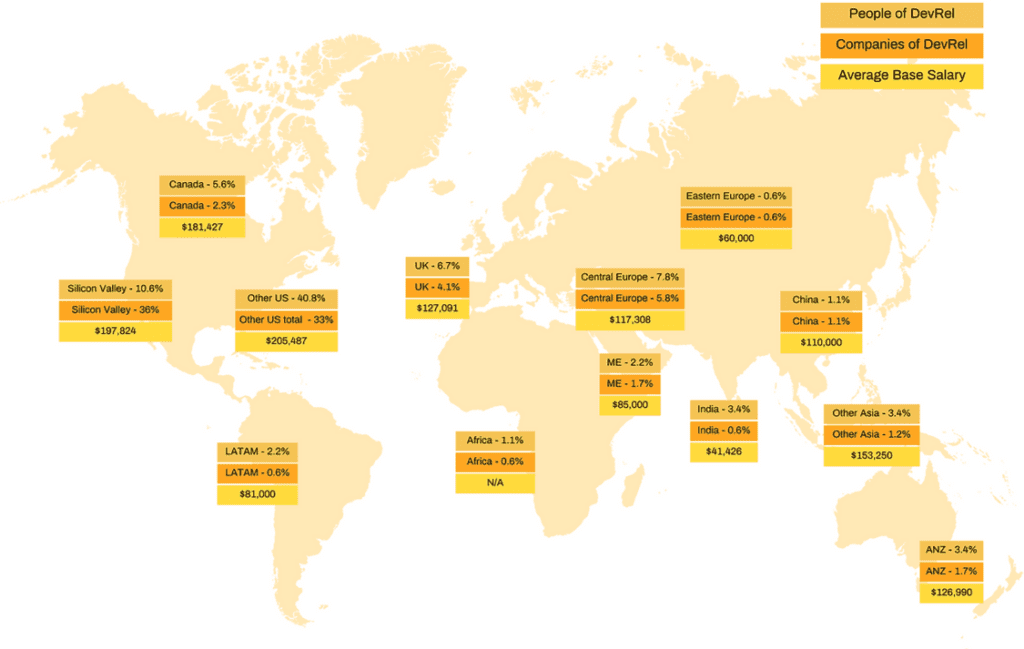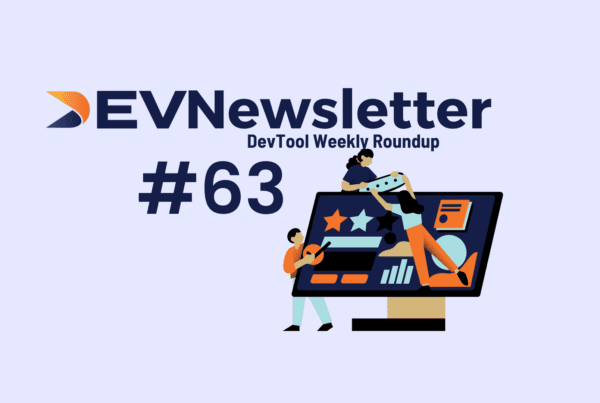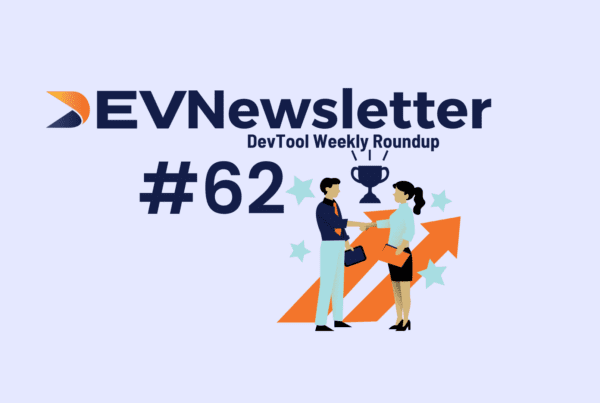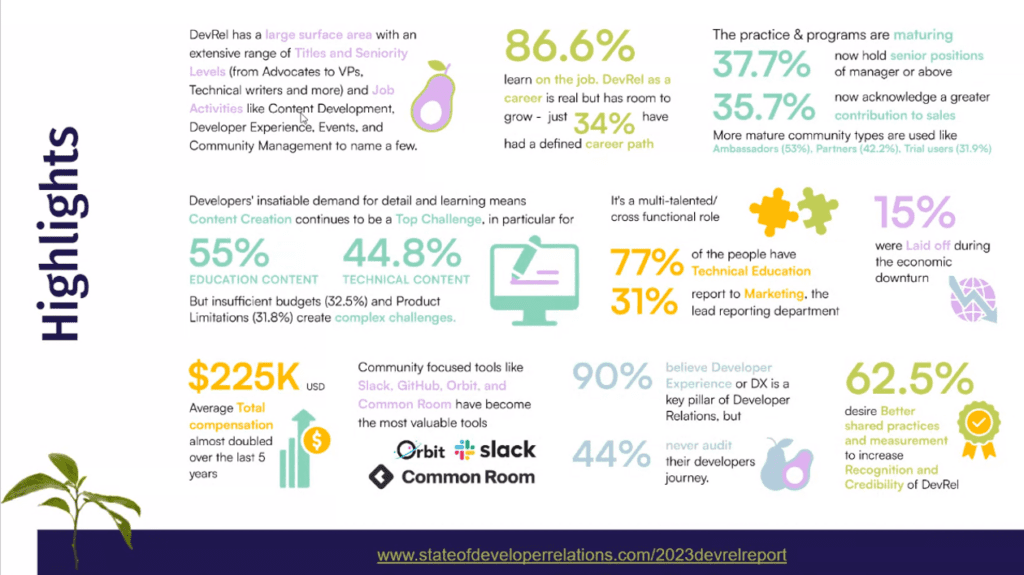
10th Annual State of Developer Relations Report: Key Highlights
When it comes to navigating the world of Developer Relations, DevRel.agency is your ultimate guide. With a proven track record of helping both startups and tech giants, they truly are the ‘DevRel experts’ they claim to be.
This week, DevRel.agency unveiled the 10th Annual State of Developer Relations Report, accompanied by an engaging interactive discussion led by Caroline Lewko, the founder of DevRel.Agency, to dissect some key takeaways.
The discussion made it abundantly clear that despite Developer Relations being a profession for nearly 25 years, there remains a lack of maturity in the field, which leads to:-
- Wide variations in salaries based on company size, location, industry, and DevRel knowledge – but it can be somewhat unclear and chaotic even when these factors are considered.
- Overall lower salaries compared to peers with similar education and experiences.
- Economic conditions impacting DevRel job stability during times of high unemployment – which we witnessed at DevRelCon London, when the audience were asked to raise hands if they themselves or anyone they know were laid off in the past 2 years and close to 100% of the audience raised their hands.
- Unrealistic expectations of DevRel professionals, requiring expertise in various areas like marketing, sales, communication, technical content creation, community management, PR, education, and product knowledge.
- Frustration when it comes to starting a new DevRel job as it can be like starting from the bottom again, if the organisation is new to DevRel, or has implemented a very different type of DevRel programme that you are used to.
As Wesley Faulkner (Senior Community Manager at AWS and podcaster and public speaker), neatly summarised in the report read out, “DevRel is undervalued because it’s misunderstood” so it falls upon us who realise the value of DevRel to educate.
The 10th Annual State of Developer Relations Survey and Report, aims to do just that.
We have pulled from it certain findings relating to; education, learning resources, job and activities, and salaries. However, whoever you are, if you work in tech, we HIGHLY encourage you to give it a read (it’s also presented in a wonderful format).
Education and Work Background of DevRel Professionals:
The report shows that 77% of respondents have some form of technical education or training. This includes degrees from higher education institutions (61%), technical certifications (9%), and coding bootcamp experience (7%). Interestingly, 23% had none of the above, indicating a diverse technical makeup within DevRel.
It was also revealed that DevRel professionals often come from technical backgrounds, with 57.9% having roles in Engineering or Development. However, unique backgrounds prior to DevRel include Principle Cloud Economist, Senior Reporter, and Livestream Host, showcasing the diversity of experiences within the field.
Job Titles in DevRel:
The titles of those working in developer relations can be confusing. From Evangelists to Advocates and Community Engagement Officers – the titles are wide and varied.
Respondents were asked to specify their most recent/current DevRel job title and Developer Advocates at various levels are the most frequent at 42.8%. However, the report also emphasizes that DevRel extends beyond Advocates, with 43% of roles incorporating ‘Developer Relations’ in the title.
Learning Resources:
Learning to be a DevRel professional primarily occurs through informal methods. “On the job” learning leads the way at 86.6%, with peers (63.7%) and blogs (51.4%) also being prominent resources.
Core DevRel Activities:
Content development is the primary job activity for DevRel professionals in 2023 as it was in 2022, with a specific focus on education.
“This year we expanded the range of Content Development to better track the varying types. Now the results show Content Development related to Education leads at 55%, followed by Content Development – Technical, such as documentation, at 50%.”
Advocacy continues to be a top-three activity, and the report reveals the emergence of Developer Experience as a key job activity.
When asked which of the following activities do you believe are part of developer relations, respondents opted for Community (93.8%), Advocacy (93.8%) and Developer Experience (90.4%) as the “core pillars” of Developer Relations.
“DevRel is carving out a space distinct from marketing and product in an organization, despite reporting to those areas.”
Further on this point, the majority of respondents (88.7%) believe that Sales activities are NOT part of a DevRel role.
Challenges and Community Building:
DevRel practitioners face challenges in measurement (67.3%), awareness (59.2%), and burnout/mental health issues (40.1%).
To strengthen DevRel’s credibility and recognition, the community suggests better shared practices, evangelizing DevRel within organizations, and establishing common terms and metrics within the tech industry as a whole.
Salaries and Compensation:
The report provides insights into the compensation of DevRel professionals. The median base salary stands at $175,000, with an average base salary of $167,088. Base salaries in the field range from $10,000 to $400,000.
Compared to 2022, there has been a noteworthy increase in both median and average base salaries, with both increasing by over 10%. The median total compensation, which includes bonuses and perks, is $200,121, representing a rise from the 2022 median of approximately $180,000.
On average, the value of bonuses, RSUs, and perks is $58,006, marking a substantial 34.7% increase from the base salary. The standard deviation of total compensation is $138,040, which is twice the standard deviation of base salary, indicating that most respondents do not earn significant bonuses.
The maximum increase in base salary when accounting for bonuses, stock options, and RSUs is 158%, while the minimum bonus is just over 1%. Notably, 27.2% of respondents reported either not receiving a bonus or it was not applicable to them. Out of 158 respondents for base salary, only 115 reported increased salaries, which included bonuses and RSUs.
Furthermore, the data reveals that average and median base salaries were higher for female respondents compared to male respondents. The highest base salaries were reported by non-binary respondents, likely influenced by the smaller sample size and location.
The report highlights a disparity between the location of DevRel professionals and the headquarters of their companies. Despite many companies being based in the US and Silicon Valley, the DevRel workforce is underrepresented in these areas, with only 51.4% in the US and 10.6% in Silicon Valley.
In conclusion, the 10th Annual State of Developer Relations Report sheds some much needed light on the DevRel profession. We have only summarized a very small part of the 51 questions it asked respondents. As well as highlighting the challenges, diversity, and potential of this field, it also covers trends in companies with DevRel functions and findings of DevRel Programs. Undoubtedly, it serves as a valuable resource for both professionals and organizations. This report reinforces the need for continued education, awareness, and recognition within the DevRel community. It’s a must-read for anyone in the tech industry looking to understand and navigate this profession.
